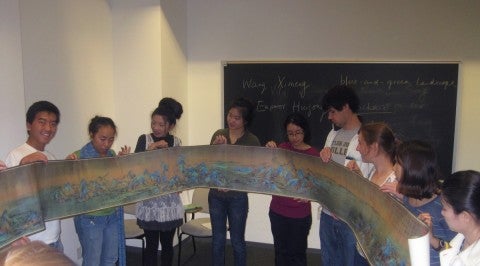Assistant Professor Farshid Emami’s new book Isfahan: Architecture and Urban Experience in Early Modern Iran (Penn State University Press) was recently released on April 2, 2024.
“A vibrant urban settlement from medieval times and the royal seat of the Safavid dynasty, the city of Isfahan emerged as a great metropolis during the seventeenth century. Using key sources, this book reconstructs the spaces and senses of this dynamic city.
Focusing on nuances of urban experience, Farshid Emami expands our understanding of Isfahan in a global context. He takes the reader on an evocative journey through the city’s markets, promenades, and coffeehouses, bringing to life the social landscapes that animated the lives of urban dwellers and shaped their perceptions of themselves and the world. In doing so, Emami reveals seventeenth-century Isfahan as more than a cluster of beautiful monuments and gardens. It was a cosmopolitan city, where senses and materials, nature and artifice, and ritual and sociability acted in unison, engendering urban experiences that became paramount across the globe during the early modern period.
Drawing extensively on Persian literary and visual sources, including the “Guide for Strolling in Isfahan,” this book casts new light on the history of a major Eurasian city and opens up new possibilities for cross-cultural studies of urban experience in the early modern period.”
For those wanting to learn more from Prof. Emami, he will be teaching both D1 courses “HART 101: Intro. to the History of Art I” and “HART 221: Cities, Mosques, Palaces: Intro. to Islamic Art & Architecture” in the fall.


